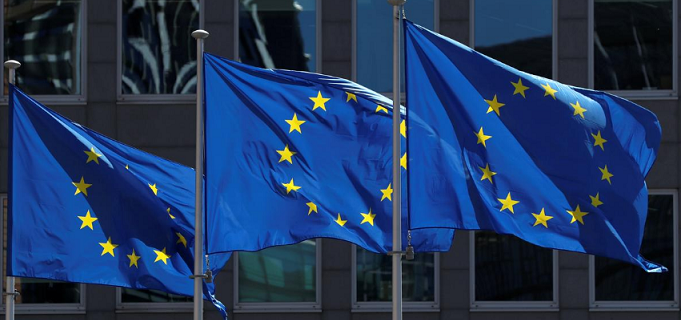EU’s tax irregularities attract international attention

Le Monde’s recent “OpenLux” revelations show that Luxembourg fails to act fairly within the European Union by offering low tax rates to corporates – underscoring the flaw of an unharmonised EU system, according to Jay Sanghrajka, partner at Price Bailey.
“The government of Luxembourg is not playing at a level playing field when other countries in Europe have rates of 25 percent upwards,” he says. “Luxembourg is allowed to offer deals with very low tax rates, and this shouldn’t be allowed. That’s where things can go wrong.”
Qualified as one of the EU’s most discreet tax havens, Luxembourg has established itself as a financial hub for corporates looking to lower their tax bill.
Companies operating in Luxembourg are subject to a 17 percent corporate tax rate, with an additional 6.5 percent municipal tax and a 1.19 percent contribution to an employment fund, but agreements made between the Grand Duchy and corporates mean businesses can pay less than one percent in direct tax.
To this day, Luxembourg currently attracts 55,000 offshore companies with assets valued at €6,500bn in total, according to Le Monde.
“We cannot accept that companies whose wages have been nationalised put their profits in tax havens,” said Pascal St-Amans, director of Centre for Tax Policy and Administration at the OECD, in an interview with France Culture.
In March 2019, an OECD Global Forum deemed that Luxembourg was overall “largely compliant,” with the international standard of transparency and exchange of information. The country today has reaffirmed its compliance by sharing the register of beneficial owners publicly.
“Luxembourg is one of the first countries to have published this register – which is a European requirement,” said St-Amans. “It got caught in its own transparency game.”
It is entirely legal for holding companies to establish subsidiaries in Luxembourg, although parent companies are required to prove their economic activity if they wish to register intellectual property (IP) in a Luxembourg division.
Multinationals such as Amazon or LVMH have set a variety of subsidiaries to benefit from its tax rate below one percent, according to Le Monde.
“If you buy something from Amazon and you look closely at the invoice, it will say it’s been issued from Amazon in Luxembourg,” explains Sangharjka.
But Base Erosion and Profit Shifting (BEPS) can also be done through Transfer Pricing (TP) – allowing corporates to transfer profits to the low-tax country.
Subsidiaries can sell goods, services, or IP to another subsidiary from the same parent company below market price – enabling the holding company to reduce its tax bill. However, TP has become a major tax compliance issue and under article 9 of the OECD Model Tax Convention, initiated in 2017, corporates should follow the arm’s length principle, in which the price charged in a transaction should be equal to the market price.
Companies failing to comply with TP rules could face added fees or penalties.
In September 2019, the Australian Tax Office (TAO) claimed that Glencore Australia (CMPL) had sold copper concentrate to its Swiss parent company Glencore International AG (GIAG) at a price lower than market price during the financial years from 2007 to 2009. The Court found in favour of Glencore, and ATO also lost the TP appeal in November 2020.
The processes by which funds are moved are straightforward. If an affiliate has a surplus of money and another requires cash, the holding company can also establish a Luxembourg company as a lender rather that lending money across, according to David Sayers, international tax partner at Mazars.
“One company will give the money on deposit to the Luxembourg company with maybe a one percent interest on it. Then the Luxembourg company will lend it out to the other subsidiary at eight to nine percent, because it’s a riskier subsidiary – all completely legal within the TP rules,” says Sanghrajka.
In 2009, BlackRock agreed to acquire Barclay’s Global Investors for $13.5bn, in which part of the financing was made through a $4bn intercompany loan involving various affiliates in the UK and US. The structure – which was led by EY – was designed to have an interest rate deduction in the UK – which HMRC attempted to contest. The UK tax authority argued that BlackRock’s intercompany loan had not been made on a commercial purpose but made solely to avoid paying tax – therefore breaching TP rules.
BlackRock won the case in November last year and was granted $1bn in tax relief on the basis that independent enterprises could have lent $4bn on similar terms.
But TP is not the only tax avoidance measure companies can follow. Luxembourg is also considered an attractive financial district for its non-existent withholding tax on interests and royalties.
“Unlike the UK and most of Europe, there is no deduction when you pay the interest to an oversea entity. It’s a nice way of saving tax,” says Sanghrajka.
“It’s a trusted financial centre,” adds Sayers. “An awful lot of institutional investors, they might be pension funds, investment managers, life insurance companies who are there because these benefits aren’t confined to necessarily a small group of people, they might be confined to a lot of people with pension funds and life insurance policy sets. Any fund manager will look to optimise returns for policyholders.”
But Luxembourg is not the only one offering tax advantages to corporates, which has become a real challenge for the OECD’s BEPS Action Plan – aimed at tackling the arising tax challenges of globalisation.
Ireland’s 12.5 percent corporate tax rate has attracted a large amount of inward investment over the years, regardless of wider European plans for harmonisation.
In 2019 alone, US multinational enterprises (MNEs) invested $354.9bn in Ireland, according to the Bureau of Economic Analysis (BEA).
Sayers says that despite a positive direction of travel provided by the OECD’s BEPS Action plan, international consensus will take a long time to build and to enforce, particularly if corporates oppose the rule.
“Businesses want things they can work with. If we’re not careful, they are going to start paying tax twice. The mistake that the OECD made is that they’ve linked consumer facing businesses with digital businesses. As a result, the proposals that are due to be approved won’t get through,” he says.
“You’ve got to get big businesses, multinationals, say I’ll work with this. Unless you get the buy in of the US multinationals, it won’t go anywhere.”
In 2016, the European Commission argued that Ireland granted tax benefits of up to €13bn to Apple, but the Minister for Finance Michael Noonan deemed it was necessary to maintain Ireland’s attractiveness as a “location of choice for long-term substantive investment,” according to the government’s press release.
Ireland and Apple won the case at the EU’s second-highest court in 2020, but the Commission announced in September its decision to appeal before the European court in a bid to ensure that “all companies big and small, pay their fair share of tax remains a top priority.”
Tech giants – which constitute mostly of US multinationals – yet largely oppose this idea.
The Trump administration argued the proposal of a Digital Services Tax (DST), which involves a three percent tax on revenues, unfairly targeted American companies and threatened to impose tariffs if the rule was implemented.
“I remember sitting in the room in Paris when this first started in 2012. And overall, the Americans in the room hated the idea,” says Sayers.
But St-Amans remains bullish that recent talks with the Biden administration have revived hope of achieving global consensus around taxation.
“We have hope that we will succeed in finding a solution in July at the G20. There is a dynamic which is mostly positive,” he said.
St-Amans reiterated the need to tackle anticompetitive tax regimes.
“We need to establish international rules of cooperation, of regulation, that will ensure that we limit fiscal competition, that we limit the legal structure that permits the reduction of taxes in states of residence in a legal way. We need to make it illegal,” he said.
Sayers believes tax authorities should seek harmonisation by focusing on the calculations around tax rates.
“Corporate tax harmonisation is not just about the rate of tax. It’s about the way in which you calculate the tax. This is helped by international accounting standards,” he says. “Calculate the tax in the same way, then that might be a good start. So that way, at least the profit is divided up the same way and then all you’re left with is the rate. There could be some degree of harmony.
Unitary taxation – which requires corporates to contribute to tax in the country where they employ workers and operate – could help tackle the issue of reaching consensus, according to Sangharjka.
Yet the global health crisis is bound to transform the taxation system as governments seek extra cash to finance the pandemic’s impact.
“I would imagine you will see a greater focus on tax havens and TP,” says Sayers. “Countries are now more accountable than ever because of the crisis. They cannot afford to be seen to be giving tax breaks to multinationals when they’re paying out billions and billions for the pandemic.”
Sanghrajka says the pandemic will “absolutely” stimulate change within taxation.
“There is quite a lot of push in terms embarrassing people – saying what tax you’re not paying means that we don’t have enough hospital, nurses or doctors.”
“The financial crisis of 2008 and without a doubt coronavirus will, in my opinion, accelerate the fiscal regulation of globalisation,” added St-Amans.
Most sources agree that tax hikes are inevitable to help pay for the damage the pandemic has inflicted on economies everywhere. When that happens, fiscal policies will gain particular attention – particularly those seen to assist tax avoidance, says Sayers.
“The difficult thing is if the economy is recovering from the virus, you can’t kill it. If you impose a tax increase too quickly, you’ll kill the recovery, assuming we recover. It will mean, perhaps, that there is further scrutiny of this kind of tax haven,” he says.
“If we’re going to recover from this virus, we need to make the corporate environment attractive.”
Source: AccountancyAge





























